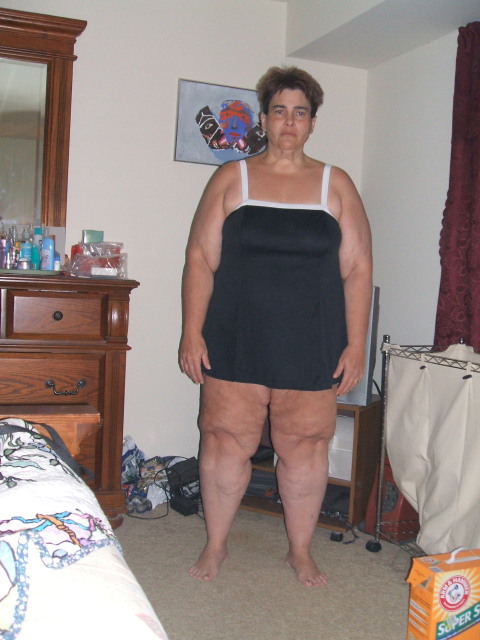advice on which surgery to get
Question
I am a 41 year old female with a BMI of 46, 5-7 320 lbs... I was told by a bariatric specialist that the VSG would be good for me. Currently, I get hungry often, I have sweet tooth, I want to get down to weigh at most 175 lbs.. Help!
Hi Margaret:
The good news is that most of the surgeries will help you with hunger and your sweet tooth. Traditionally, people with a sweet tooth (who want to give up sweets) tend to go for the Roux-en-Y because of the dumping effect. Any sugar you eat causes you to get sick. The problem with depending on dumping to curb your sweet tooth is that 1)not everybody dumps and 2) the effect often lessens as you get further out from surgery. All of the surgeries (VSG, RNY, DS) will help you with hunger. Both the VSG and DS help reduce ghrelin--one of the hunger hormones. There was recently a 5 year study published on the VSG that showed that the ghrelin reduction was still in effect at 5 years. As the DS encorporates the VSG along with an intestinal bypass--you would get the benefit of the restriction and ghrelin-reduction, plus the reduction in caloric absorbption from the duodenal switch. The RNY reduces hunger as well--but the hunger reduction as not been documented as lasting as long.
I think the main problem I see with the VSG is your goal weight. So far, the long-term studies are showing, on average, a 55-58% excess weight loss. So, if we assume that you have 170 pounds to lose (using an ideal body weight of 150), you would lose a little more than half of that....93.5 to 98.6 pounds... which would still leave you roughly 50 pounds above where you want to be. Would you be healthier?? Absolutely. Would you have a good chance of keeping that weight off? Absolutely. But you probably wouldn't be below 200. There are people who do lose more, but these are the averages--and I think you need to realistically consider them. The good news is that if you did chose the VSG, and were not happy with your weight loss, any revision is considered pretty simple surgery.
If you went with the duodenal switch, you'd have the benefits of the ghrelin reduction as well as the ability to eat slightly larger portions than with a VSG. Dumping is not typical; however, often DS patients tend to limit their refined carbs as this can lead to gas issues. Weight loss is about 20% higher than with the VSG, so there's a good chance you'd reach your goal.
The RNY is slightly better than the VSG, but honestly--I've seen way too many revisions at the 4-5 year mark to recommend it without reservation. If you truly think that a year without sweets could get you on the path to a lifetime without sweets, it might be the surgery for you.
All three surgeries require lifetime bloodwork. The VSG, even though it doesn't involve any intestinal bypass, can still lead to vitamin D, folic acid, and B12 issues. Many people with the DS supplement with protein shakes as they malabsorb 50% of the protein they eat. (Also 80% of the fat and anywhere from 10-50% of carbs). (That also means that those calories are not absorbed.)
My advice to you would be to go to ObesityHelp.com and hang out on the VSG and DS boards. Try and speak to people at least 2 years out, preferably longer. Usually in the first 6 months to 1 year, people are in their honeymoon phase--so you can get a distorted view. Also remember even though people may say... I know plenty of people who lost 100% of their weight or whatever... those statements really do not hold up with any of the research that has been published in peer-reviewed journals. Also know that people who are not successful with their surgeries tend not to hang out on the support boards for long. A lot of it has to do with feelings of guilt... or being sick of seeing others be successful when they are not. More times than not, it's not their fault--they just chose the wrong surgery for them. None of the weight loss surgeries lead to 100% EWL that can be maintained. They all have much better results than any diet or medication.....at least 50% EWL for most people.. but none are 100%. Also go to the Revisions board and see who are getting revisions, when and why.
Ask yourself how long have I been obese or morbidly obese? Am I good at following a diet? Do I have any co-morbidities (diabetes, sleep apnea, hypertension, etc.)? What sort of lifestyle do I want to lead post-surgery? These can all help you chose your surgery.
My final piece of advice would be to consult with a surgeon that does all of the surgeries (Lap-Band, RNY, VSG, and Duodenal Switch) and can truly give you unbiased guidance. Most surgeons these days will do the RNY, VSG, and Lap-Band--but not the DS. You want one who does all of them. You can find a list of DS surgeons on duodenalswitch.com or dsfacts.com
Good luck, Margaret. I hope you find the surgery that is right for you!
Karla
Related Articles
-
sleeve gastric bypass
QuestionI had a sleave bypass 3 mounths ago.i have been haveing p
-
thyroid removed contemplating bariatric surgery
Question3 years ago I had my thyroid removed after being diagnose
-
Emtional/Mental Health Post Bariatric Surgery
QuestionI am about 3 years post bariatric surgery. I am in excell
-
lap band and alcohol
QuestionI have substituted alcohol for food. I dont know wh
-
Armour Thyroid
QuestionHello I am male,48. I am sick of being overweight. I am s
-
OHIP Coverage
QuestionI have reviewed comments where by people have stated that
More Great Links

